Drug and alcohol addiction is not a choice but an illness.
All parts of the UK are affected by the disease of drug and alcohol addiction, including Lincoln.
Overcoming the illness of addiction is complicated and treatment at a professional drug and alcohol rehab is often required.
Fortunately, Lincoln is home to a variety of drug and alcohol rehab services and addiction treatment providers to help address this problem.
Whether it’s a case of alcohol misuse like binge drinking, a different form of substance abuse like cannabis or heroin addiction, or even a behavioural addiction like gambling addiction or compulsive shopping, our rehab team can help you.
This article will be of use to people suffering from drug or alcohol addiction in Lincoln and near Lincoln, or North Lincolnshire.
It will discuss what treatment is available, including private rehab, how to access it and what to expect from drug and alcohol rehab in Lincoln.
Please call our 24-Hour Helpline for support with drug and alcohol rehab Lincoln: 0800 140 4690

An intervention involves the gathering of Concerned Others (COs) – family and friends, for example – to convince a loved one that they need to seek professional rehab support in Lincoln for their drug or alcohol abuse.
This may be an essential step before your loved one agrees to attend a drug and alcohol rehab in Lincoln.
Interventions usually take place at a family or friend’s home, where COs will take turns to express their concerns and how the loved one’s substance use has impacted them, whilst also offering them the various options for drug and alcohol rehab available to them in Lincoln.
The primary goal is accountability – that is, the loved one takes responsibility for their behaviour and acknowledges that they need help, overcoming denial and seeking out rehab for drug or alcohol addiction in Lincoln.
In addition, interventions often provide COs with an opportunity to reflect on their enabling behaviour and seek to stop it – even if it’s as seemingly harmless as providing money or accommodation.
There are several other approaches to drug and alcohol intervention, such as the Community Reinforcement And Family Training (CRAFT) method.
The CRAFT Method [1] specialises in helping families that are struggling to get a loved one to seek help, teaching them how to encourage better behaviour in their loved one through positive reinforcement over a long-term period, eventually bringing the addiciton sufferer around to the idea of drug and alcohol rehab treatment in Lincoln.
Please call our 24-Hour Helpline for drug and alcohol rehab in Lincoln: 0800 140 4690
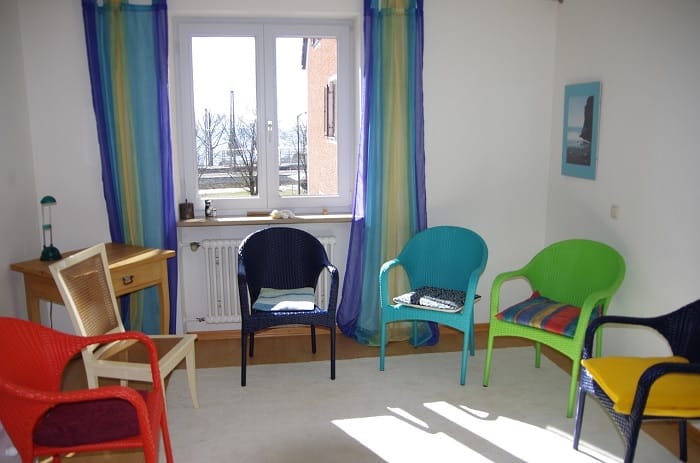
The two most common types of rehab treatment for drug and alcohol addiction in Lincoln and across the UK are inpatient and outpatient. [2]
Although they provide distinct approaches to drug and alcohol addiction treatment, both forms offer detox support, counselling and therapy, relapse prevention and aftercare.
Inpatient drug and alcohol rehab treatment is primarily residential – that is, people will be expected to stay at a facility for the duration of their drug or alcohol rehab treatment.
Inpatient rehab treatment in Lincoln usually lasts for 28 days on average, and people will be provided with 24/7 medical assistance, making inpatient rehab treatment ideal for those with severe addictions to drugs or alcohol.
On the other hand, outpatient drug and alcohol rehab treatment requires people to attend weekly appointments (12 to 14 hours per week) at a local facility or doctor’s surgery.
This treatment option is better suited to people that have other engagements and responsibities in Lincoln that they cannot time time away from, such as childcare.
In addition, outpatient rehab treatment can usually be accessed for free through local drug and alcohol support services in Lincoln.
There are two downsides to outpatient rehab treatment: it does not remove people from their usual environment – meaning that they will be surrounded by potential drug or alcohol triggers – and it usually lasts a lot longer.
It is not uncommon for outpatient rehab programs in Lincoln to last between six months to a year.
Please call our 24-Hour Helpline: 0800 140 4690

For those based in Lincoln/Lincolnshire and looking for addiction rehab, there are several free drug and alcohol services available.
Free and NHS-run rehab addiction treatment services [3] in and around Lincoln include:
Address: Sycamore Centre, Beacon Lane, Grantham, NG31 9DF
Telephone: 0303 123 4000
Address: 26-30 Newland, Lincoln, LN1 1XG
Telephone: 0800 304 7021
Website: https://www.wearewithyou.org.uk/
Telephone: 0300 303 8789
Website: https://lincolnshire.connecttosupport.org/
Individuals can also access help for treating drug and alcohol addiction through the NHS via a local NHS Foundation Trust [4] or sober living housing schemes.
Please call our 24-Hour Helpline: 0800 140 4690
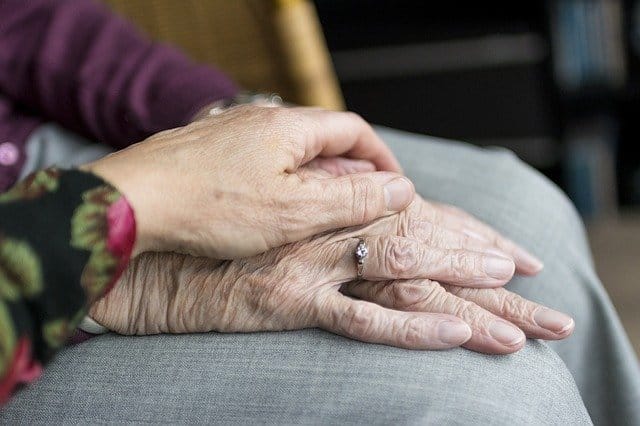
The NHS also runs outpatient drug and alcohol rehab programs that are available through local GPs in Lincoln and near Lincoln.
Unfortunately, the NHS does not have its own residential rehab treatment facilities.
It might be possible, however, to access funding through the NHS for private residential rehab treatment in Lincoln.
It requires an application to be made via the local council in Lincoln and needs a referral from a drug and alcohol key worker.
It should be noted that drug and alcohol rehab funding is not easy to come by and often requires people to have already attended local services and therapy and, in some cases, already have detoxed from drugs or alcohol.
The waiting list for rehab funding in Lincoln can also be long – on average, people can wait between six months to a year.
This might not be ideal – and in fact might even be dangerous – for someone who has a severe addiction and needs drug or alcohol rehab right away.
There is also the option to self-fund rehab treatment in Lincloln, but this can be expensive.
Please call our 24-Hour Helpline: 0800 140 4690

According to the latest data, the average UK-based drug and alcohol rehab facility charges £300 to £500 per day for rehab treatment.
Some UK-based insurance companies offer health insurance that covers the cost of treatment.
Examples of such companies include BUPA [5] and Aviva. [6]
These may offer to cover the entire cost of drug and alcohol rehab treatment or just part of it.
It is also possible to work out a payment plan with a rehab centre that breaks down treatment costs over a long period of time, making it accessible even if you don’t have insurance.
Please call our 24-Hour Helpline: 0800 140 4690
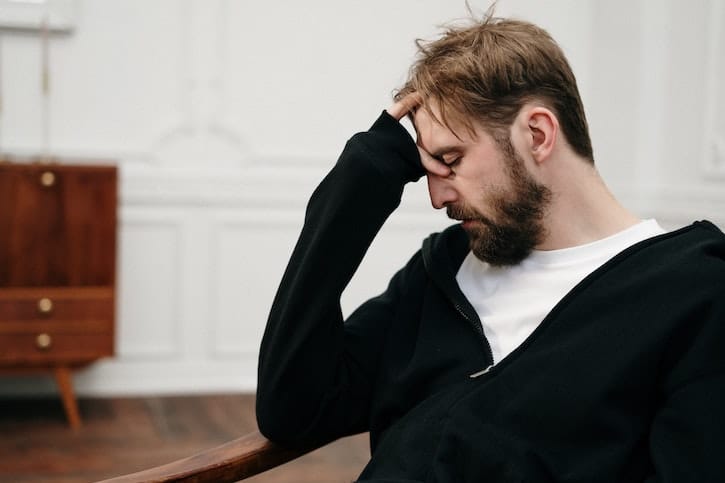
Dual diagnosis is when a person is diagnosed with both drug or alcohol addiction problems and mental health issues at the same time.
This is due to the strong interrelation that exists between addiction and mental health disorders, with one often impacting or even causing the other.
Studies have explored the relationship between mental health and addiction, finding that substances such as alcohol, cannabis, cocaine, fentanyl and heroin, can lead to mental health issues.
In addition, people with mental health issues will often use such substances as a form of self-medication – this significantly increases their chances of developing an addiction and needing the help of a rehab.
Uncovering dual diagnosis is important for drug and alcohol rehab treatment, as it will help professionals determine whether certain medication or therapy is needed.
You can also find general mental health support outside of the rehab support network at Rethink Mental Illness, Papyrus, Young Minds, Samaritans and Mind UK.
Please call our 24-Hour Helpline: 0800 140 4690

The first stage of most drug and alcohol rehab treatment is detox.
As mentioned, this involves the body expelling the addictive substance and often leads to powerful withdrawal symptoms.
Withdrawal symptoms will vary from person to person and from substance to substance.
Cocaine and cannabis addiction do not inflict physical dependence and so do not require a detox.
However, they can still cause withdrawal symptoms, particularly psychological ones such as depression, anxiety and intense cravings.
Heroin withdrawal, on the other hand, ranges from mild to severe and typically comes with both psychological and physical symptoms [7] that need to be addressed at rehab in Lincoln.
These include everything from diarrhoea, sweating, vomiting and intense cravings to hypertension, respiration issues, hallucinations and a dangerously increased heart rate.
When withdrawing from heroin, people are likely to be prescribed Methadone, Suboxone or Buprenorphine as part of their medically supported heroin detox, which works to keep these withdrawal symptoms to a minimum.
It is highly recommended that someone withdrawing from heroin in Lincoln does so in a properly supported and supervised rehab facility.
After the drug detox period (if it is necessary) a patient will engage with the psychological side of rehab, going through a thorough course of therapy to help them get to the root cause of their addiction and break free from it once and for all.
Please call our 24-Hour Helpline: 0800 140 4690
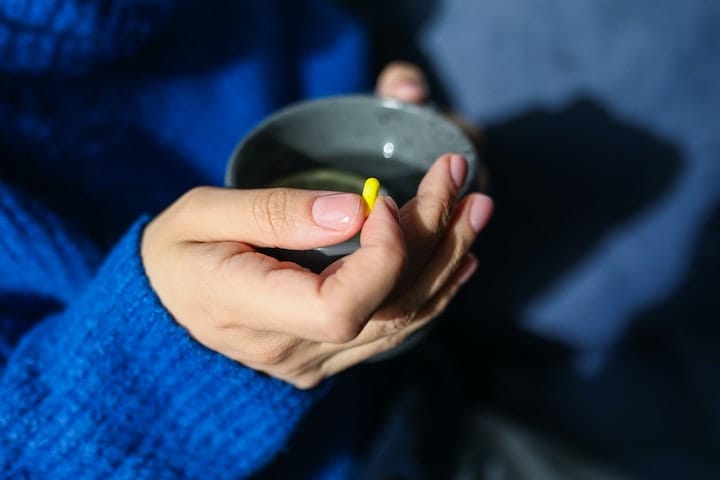
Alcohol withdrawal symptoms, or Alcohol Withdrawal Syndrome (AWS), tend to range from mild to severe [8] depending on how bad your alcohol addiction is, necessitating specialist rehab treatment.
Mild to moderate alcohol withdrawal symptoms include tremors, sweating, anxiety and vomiting, whilst more serious symptoms include high blood pressure, respiration issues, insomnia and delirium tremens.
At rehab, patients will often be prescribed a sedative to help alleviate alcohol withdrawal syndrome.
Librium is commonly used, a benzodiazepine that helps to reduce alcohol related anxiety, prevent insomnia and increase appetite.
Most alcohol withdrawal symptoms will subside after a week at rehab.
Drug & alcohol rehabs in Lincoln are regulated by the CQC Care Quality Commission, and strict procedures are put in place to mitigate the risks you otherwise face when undergoing an alcohol detox.
Please call our 24-Hour Helpline: 0800 140 4690

After any necessary detox procedures, those attending rehab for drug or alcohol addiction will experience a series of intense therapies designed to help them break free from the grip of addiction.
Each of these is a thoroughly proven and evidence-based therapy technique adapted to suit the individual and their specific needs whilst at rehab.
Please call our 24-Hour Helpline: 0800 140 4690

Relapse prevention planning is also an essential part of drug and alcohol rehab in Lincoln.
The purpose of this stage of addiciton recovery is to prepare the person to re-enter their old environments and maintain sobriety after drug and alcohol rehab.
To help achieve this, and working alongside a professional counsellor and other rehab staff, people will create a relapse prevention plan.
This is a written document that explores the person’s reasons for their addiction and their potential drug or alcohol triggers and situations that could lead to them using again – people, relationships, or stress factors like unemployment, for example – helping them to stay aware of these risks after they leave rehab.
People will also be taught useful skills that can be implemented should temptation or difficult circumstances arise, including how to recognise and prevent negative thought patterns, how to practice emotional management and how to seek quick addiction help outside of rehab.
The latter is part of the aftercare programme that all drug and alcohol rehab treatment programs provide.
As the name suggests, aftercare involves continued support, therapy, and help to access local services.
In addition to We Are with You, [9] Lincolnshire and Lincoln itself is home to Alcoholics Anonymous (AA), [10] Narcotics Anonymous (NA), [11] Cocaine Anonymous (CA)[12] and SMART Recovery. [13]
Loved ones affected by drug and alcohol addiction may reach out to Al-Anon Family Meetings [14] and Alateen, [15] which also offer 12-step programmes for the loved ones of those suffering from addiction or teens specifically.
Each of these support services is free of charge.
A good drug and alcohol aftercare plan has often been proven as the key difference [16] between sustained sobriety and relapse after a person leaves rehab.
Match your stay at a drug and alcohol rehab in Lincoln with an equally effective aftercare plan by calling us today on 0800 140 4690

To learn about suitable addiction rehab treatment in Lincoln – whether private, charity or NHS-funded – contact Rehab 4 Addiction today on 0800 140 4690.
Every drug and alcohol rehab in England and Wales that we work with is vetted by the Care Quality Commission [17] to ensure the quality and effectiveness of their addiction treatment.
Get help for addiction anywhere in the county of Lincolnshire, North East Lincolnshire, South Lincolnshire and North Lincolnshire, including in Grimsby, Scunthorpe, Grantham, Boston, Cleethorpes, Spalding, Skegness, Gainsborough, Stamford, Sleaford, Louth, North Hykeham, Bourne, Market Deeping, Mablethorpe, Barton-upon-Umber, Immingham, Holbeach, Horncastle, Brigg, Washingborough, Waltham and many others.
Please call our 24-Hour Helpline: 0800 140 4690
This article was written by Boris Mackey. You can connect with Boris online at LinkedIn or X.com.
[1] https://pmc.ncbi.nlm.nih.gov/articles/PMC4394369/
[2]https://www.tandfonline.com/doi/abs/10.3109/00952998109009557
[3] https://www.nhs.uk/Live-well/addiction-support/drug-addiction-getting-help/
[5] https://www.bupa.co.uk/newsroom/ourviews/addiction-types-and-support
[7]https://www.tandfonline.com/doi/abs/10.3109/10826089109063460
[8]https://www.researchgate.net/publication/5859332_The_Alcohol_Withdrawal_Syndrome
[9] https://www.wearewithyou.org.uk/local-hubs/north-lincolnshire
[10] https://www.alcoholics-anonymous.org.uk/intergroups/lincolnshire-intergroup/
[11] http://na.org
[12] https://www.cocaineanonymous.org.uk/
[13] https://smartrecovery.org.uk/
[14] https://al-anonuk.org.uk/groups/lincoln-wednesday-due-to-start-10-07-24/
 Addiction is often largely misunderstood, with many incorrectly labelling it as a lack of willpower, a moral failing or something that happens after a series of bad choices. When, actually, addiction is much more complex. It can be shaped by a number of things, such as trauma, mental health, the environment you grew up in […] .... Read More
Addiction is often largely misunderstood, with many incorrectly labelling it as a lack of willpower, a moral failing or something that happens after a series of bad choices. When, actually, addiction is much more complex. It can be shaped by a number of things, such as trauma, mental health, the environment you grew up in […] .... Read More
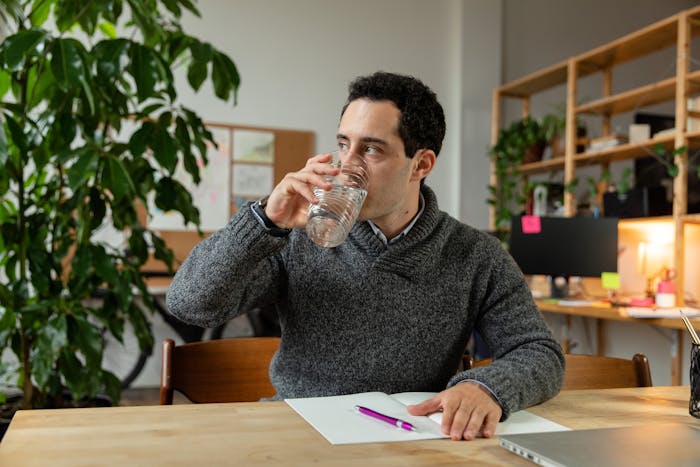 After completing or trying your best for Dry January, it can be tempting to count the days left until you can give it all up and return to drinking. But there are multiple benefits to maintaining your abstinence into February and longer. During Dry January, your liver begins to repair itself, say if you were […] .... Read More
After completing or trying your best for Dry January, it can be tempting to count the days left until you can give it all up and return to drinking. But there are multiple benefits to maintaining your abstinence into February and longer. During Dry January, your liver begins to repair itself, say if you were […] .... Read More